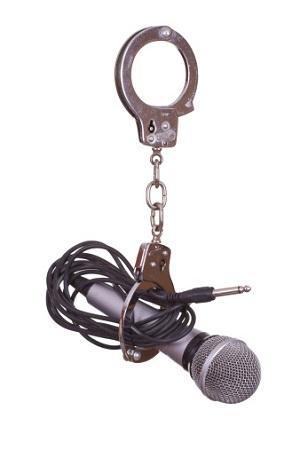
One of the questions we get often is about the legality of recording conference calls. Recent events have raised the question of when is it legal to record a call and, most important, how do you know?
There are two kinds of recording laws – one party and all party consent.
One party consent means there must be at least one person being recorded to agree and everyone else does not need to be notified. Generally speaking this means that a person can record their own phone calls without letting the other person know about the recording.
All party consent means exactly what it sounds like – if you're going to record a conference call or meeting, you must have the consent of anyone who is in attendance. References to two-party consent makes an assumption that there are only two people on the conference, but be advised if you're in a state that is referred to as two-party, and you have three people on the conference, everyone must know about the recording.
Most states have adopted the federal policy of one-party consent, but there are a number of states that require all party consent (California being one of them) and I came across this recording resource for journalists that break down the requirements by state.
Federal law prohibits recording any conversation outside of one-party consent. So if you had an idea of setting up a microphone to hear what people are saying about you – think again, it's not legal.
For conference calls that cross state lines, I want to issue a word of caution here. The law isn't really clear on this one. You are in Michigan, and you call into our conference lines (which are in Georgia), and are joined by people around the United States for a call. Some court cases have suggested that because the call crosses state lines these become federal jurisdiction and the one-party consent statute would apply. The best rule of thumb is to treat any conferences that involve parties from multiple states as “all-party” consent.
So where does the Federal Communications Commission come in? FCC rules state that you can gain consent in a few different ways: gain verbal consent from the parties involved, play a "beep" at various intervals, or announce that the call is being recorded at the beginning. If you've ever had an operator assisted call with us, you know that we always announce that calls are being recorded and it's to ensure that both your call and our company adhere to FCC regulations.
There are limited exceptions to state consent laws – like on conferences with investors, recording is mandatory. When legal warrants are in play for wiretapping, no one has to be notified that calls are being recorded by law enforcement.
While it’s always a great idea to record your conferences, we want to make sure you understand that there are varying laws out there on when you have to disclose. If you need to turn on recording announcements, you can do that through your customer account or give us a call and let us walk you through that.
Disclaimer:This blog post is not meant to give legal advice, but rather to inform you of the different laws that exist in regards to recording consent.

